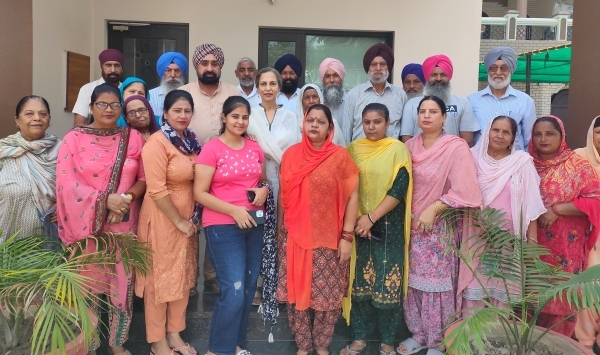What we do
We take a bottom-up approach, village by village
VLIF has designed its programs to meet the basic needs of the people – water (for sustaining life), sanitation (for a healthy life) and education (for an enlightened life). This is the VLIF model for holistic, sustainable rural development, led by stakeholders and the community, and it has proven successful over the past two decades.
Our inclusive approach ensures
Transparency & Community Engagement
Involving local communities from the planning stage through to implementation and monitoring is a vital component of VLIF’s model and central to VLIF’s commitment to transparency. Community ownership and participation are key drivers of the success of our initiatives, ensuring the success and sustainability of our initiatives within the communities we serve.


Focus on Behaviour Change
Sustainable sanitation practices necessitate a transformative shift in both attitudes and behaviors, and this imperative transformation is an integral component of our program. VLIF prioritizes fostering behavior change through effective communication strategies and mobilizing the community towards collective action. Through targeted initiatives and inclusive engagement, we aim to instill a culture of sustainable sanitation practices that endure.
Emphasis on Quality
VLIF supports local communities by engaging local suppliers, contractors and workforce in all of our projects. Our commitment to well-constructed and maintained facilities has resulted in infrastructure that endures, and we have just completed 20 years of successfully improving the lives of village residents in rural Punjab.


Tailored Approach
The VLIF model is tailored to the specific needs and cultural contexts of different regions. What works in one area may not be suitable for another, and VLIF has learned that a customized approach to each village is essential for success and ensures that interventions are not only relevant but also resonate deeply within the community, fostering sustainable and impactful outcomes.
KEY PROJECTS
Infrastructure Development
- Provide clean drinking water for all
- Laying underground sewerage throughout the village: Connecting each home to the sewerage
- Building sewerage treatment plant
- Utilization of treated water
- Paved/pucca Streets
- Street lights
- Village parks
- Village crematorium
Skills Development
- Vocational Training
- Computer Literacy
- Spoken English proficiency
- Entrepreneurial coaching
Clean Drinking Water
Access to clean drinking water is essential for sustaining life and promoting good health. It plays a crucial role in preventing waterborne diseases and ensuring the well-being of individuals and communities. Clean drinking water is not only vital for hydration but also for proper sanitation and hygiene practices. By providing safe and reliable access to clean drinking water, we safeguard public health, enhance productivity, and improve overall quality of life.


Wastewater Management
A well-functioning wastewater management system is crucial for maintaining public health and environmental sustainability. It helps prevent the contamination of water sources, reduces the spread of waterborne diseases, and protects ecosystems. By properly treating and disposing of wastewater, we minimize pollution, preserve natural resources, and ensure the safety of our communities. Investing in wastewater infrastructure is not only essential for safeguarding public health but also for fostering a cleaner, healthier, and more resilient future.
Street Paving
To eradicate the accumulation of slush, filth, and polluted potholes, VLIF incorporates a crucial initiative: paving the streets to foster cleanliness and hygiene. By implementing this measure, not only does VLIF aim to eliminate unsanitary conditions, but it also strives to create safer and more accessible pathways for community members, further enhancing the overall quality of life within the village.


Solar Lighting
Though power is supplied in many villages throughout India now, its availability is sporadic. In order to promote awareness of alternative sources of energy and for nighttime lighting and safety, solar streetlights are recommended for installation.
Village Park
Trees, greenery, and flowers are not only pleasing to the eye but are also invigorating to the spirit. VLIF encourages the community to designate an area for creating a park, particularly catering to the needs of children, seniors, and communal gatherings, thereby fostering a sense of well-being and community cohesion.


Computer Education
Many rural schools lack basic amenities,and a shortage of qualified teachers and limited access to educational resources such as textbooks and technology further exacerbates the problem.Empowering village children with computer literacy offers an economical solution to level the playing field with their urban peers. Proficiency in computers and a reasonable mastery of the English language enables them to overcome obstacles to getting information and gives them the ability to access the world.
SELF EMPLOYMENT PROGRAMS
Women’s Empowerment
VLIF promotes and supports women’s social and economic inclusion. In addition to fostering gender equality, VLIF initiatives include programs for skills development and entrepreneurship, empowering women to become active participants in economic activities and decision-making processes within their communities. These initiatives aim to equip women with the tools and opportunities needed to contribute meaningfully to community development and drive positive change.

